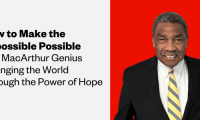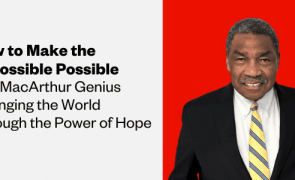In the January 1 issue of The New Yorker, music critic Alex Ross writes about “visionary Los Angeles violinist” Vijay Gupta and his organization Street Symphony, which invites LA’s homeless, mentally ill, and incarcerated communities to attend and make music with the best classical musicians in the country.
Attending a midnight performance of Handel’s “Messiah” on Skid Row, a large tent city in downtown LA, Ross writes about Gupta’s endeavour to move beyond his career as a prodigious musician (and former scientist) to reach LA’s homeless community—some 58,000 people—through music. The result is Street Symphony, which he founded in 2011. “Gupta is one of the most radical thinkers in the unradical world of American classical music,” writes Ross. “With Street Symphony, he has created a formidable new model for how musical institutions should engage with the world around them.” Ross calls Gupta “a riveting speaker, at once jovial and intense. He talks rapidly, precisely, and with startling candor.”
Read Handel’s “Messiah,” on Skid Row (The New Yorker)
But Gupta isn’t satisfied by one-off events, like the successful “Messiah,” held in a charitable institution called the Midnight Mission. “If you’re going to make any difference, you have to show up a lot more often, and not just when you feel like it. This community is one defined by trauma. In their lives, someone didn’t show up. We gotta show up,” Gupta tells Ross as they leave Skid Row after the concert.
In his talks, Gupta speaks passionately about his efforts to “show up” for a diverse range of disenfranchised people—from the homeless to the mentally ill, to incarcerated populations around Los Angeles. Within it, he speaks with optimism and creativity to how we can help each other with music, and more.















